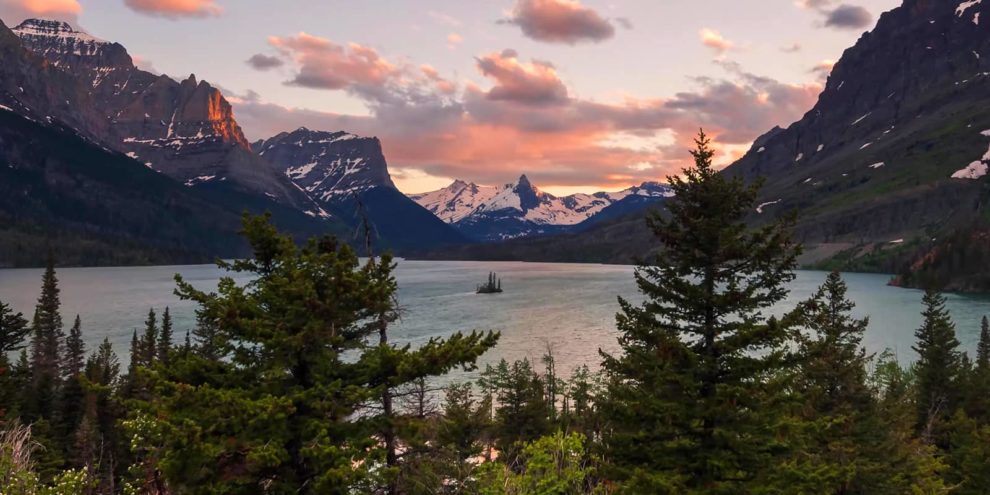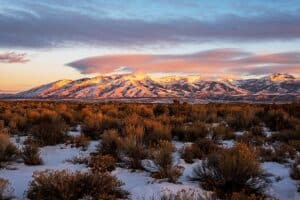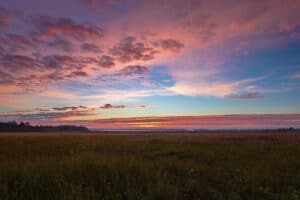If you’re looking to buy a recreational land for sale, the advantages of being near public lands are pretty clear. Just last month, 38.1% of LANDTHINK’s audience chimed-in on our sponsored Pulse question and indicated that buying rural land located near public land is SOMEWHAT IMPORTANT. There is an incredible amount of federal and state-owned land around the country, and there are many opportunities for buyers to own property that’s adjacent or in close proximity to these public spaces.
In addition to publicly owned lands, many timber companies, including PotlatchDeltic, allow hunting and recreational access to their lands through inexpensive permits or even multi-year agreements with state wildlife agencies.
With such a large amount of publicly accessible land, you may only need to own a small parcel of land for a base camp, be it an RV site, cabin or primary or secondary home, and have tens of thousands of acres nearby that are open for hunting, four-wheeling, hiking, camping or other outdoor activities.
That said, these tracts near public lands can be difficult to acquire. They don’t change ownership often, and there is an extremely limited supply. With that in mind, it’s important to work with a real estate expert who knows the area and understands recreational property sales, so you can find opportunities and be ready to buy when a prime spot becomes available.
Indeed, there are a number of factors to consider if you’re thinking about focusing your land search on tracts near public lands. With that in mind, here are five things to think about:
1. Being near public lands can be a positive for land value.
As a general rule, having property that’s contiguous or in close proximity to public land is almost always a benefit and can have a positive impact on value. That said, the level of enhanced value will vary, depending on the quality and attractiveness of the public land nearby and what public entity owns it.
So as you consider different properties for sale, also consider the quality of the public land nearby. What species of wildlife does the property have? Great whitetail deer and elk populations are common across north Idaho, for example, but are you also interested in mule deer, moose and turkeys, which can have a more localized range? Or if you are interested in activities on the water, do you want to be near fishing streams and rivers, or lakes and reservoirs?
If the nearby public land has quality wildlife, attractive scenery and a good water supply, those are significant bonuses. Another tip: If you don’t want to be near crowds, consider buying in an area that doesn’t appear to have easy access for the average hunter or outdoor recreationalist.
2. It’s important to know all applicable hunting regulations and zones as you think about where you would like to be.
The best place for hunters to find the applicable regulations, along with a wealth of other information, is on your state’s wildlife commission website. Many sites, like Outdoor Alabama, run by the Alabama Department of Conservation and Natural Resources, or Mississippi Department of Wildlife Fisheries and Parks, give details on hunting seasons, guidelines, and regulations.
One hunting area may have a very short season and require entering a lottery draw for a tag, for example, and other areas may have a long season with ample over-the-counter tags. Having an understanding of the specific season length and rules in each hunting zone will help you know where you want to buy a property.
3. Do your homework as you start looking for recreational properties near public land, so you can focus on certain geographic areas.
If you don’t know a specific area well, we recommend you search online, or contact a real estate broker who specializes in recreational property, to learn more about the opportunities for all types of recreation, whether it’s hunting, fishing, boating, hiking, biking, or just relaxing.
And there certainly is no shortage of recreational opportunities out there. As just one example, recreational land buyers in Arkansas have a wealth of public lands with properties for sale nearby, such as the Blue Mountain Wildlife Management Area, Hope Upland WMA, Ouachita National Forest, Sulphur River WMA, Rick Evans Grandview Prairie WMA, Pond Creek National Wildlife Refuge, and Felsenthal National Wildlife Refuge.
Doing this research and talking to local recreation and real estate experts will point you in the direction that feels like home.
4. Working with a real estate professional that focuses on recreational land is a key to success in finding the right property for you.
Real estate agents who specialize in selling homes usually don’t have the experience and knowledge needed to find a quality recreational property.
In addition to knowing where to look, a recreational real estate pro can help a buyer navigate everything from ensuring that a tract has sufficient access, to determining the quality of timber on a property, to gauging the quality of wildlife on the land.
And it’s important to connect with a broker who routinely works with large timberland owners in an area to be among the first to know about new properties that are coming to market. Recreational property is in high demand, so being aware of new listings as soon as they are available is key to being able to find the right property for you. When a quality property goes on sale and is priced right, it will sell fast.
5. Advantages of owning recreational property near public land can be maximized with a little extra work on your part.
There is a bonus for hunters of private land near public lands. If your land is well cared for and has good sources of food and water, it may attract wildlife from nearby public lands. When hunting pressure increases on public access areas, many wildlife species will try to hide away from the crowd, often on the adjoining private land, which could be yours.
Keep in mind that while you can access and use nearby public lands, there is also a possibility that hunters, hikers and others may cross over into your property if your boundaries are not clearly marked. A professional land broker can recommend someone to help you paint your boundary lines or establish other markers clearly identifying where your property begins.
Written by Bill DeReu, Vice President of Real Estate for PotlatchDeltic, which sells recreational properties in six states – Alabama, Arkansas, Idaho, Louisiana, Minnesota and Mississippi.
This content may not be used or reproduced in any manner whatsoever, in part or in whole, without written permission of LANDTHINK. Use of this content without permission is a violation of federal copyright law. The articles, posts, comments, opinions and information provided by LANDTHINK are for informational and research purposes only and DOES NOT substitute or coincide with the advice of an attorney, accountant, real estate broker or any other licensed real estate professional. LANDTHINK strongly advises visitors and readers to seek their own professional guidance and advice related to buying, investing in or selling real estate.










Add Comment